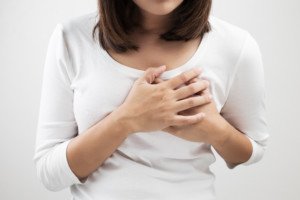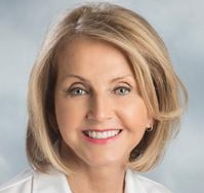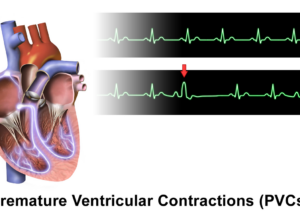
A cardiologist says that PVCs or heart palpitations after eating are not caused by the food or the physical act of eating.
“Blood flow is shunted to the intestine after eating, so we can digest our food,” says cardiologist Dr. Pam Marcovitz, MD, an internal medicine cardiologist with Frankel Cardiovascular Center in MI.
“More blood also flows to the digestive organs. This is usually not a cause of palpitations or PVCs after eating.”
So why do some people experience PVCs after eating?
They should make a documentation of this when it occurs: time of day, who was present with them during the meal, the planned activity after the meal, and any other stressors that were present while eating or shortly after.
PVCs can be brought on by anxiety and stress.
When you’re anxious or stressed, your body’s fight-or-flight response can trigger these irregular heartbeats.
This is because stress and anxiety increase adrenaline levels, which can affect heart rhythm.
So think about this: Do your PVCs usually occur after a meal with people you were arguing with?
Do they usually occur after the last bite, and within how many minutes?
Do they usually occur when the after-meal planned activity is something stressful, like going over your bills?
Eating, in and of itself, and food, do not cause premature ventricular contractions, says Dr. Marcovitz.
The rhythm control center of the heart, known as the sinus node, is not directly linked to the digestive system.
Instead, it is located in the right atrium of the heart and is responsible for initiating and regulating the heart’s electrical impulses, which control the heartbeat.
However, the body’s autonomic nervous system, which affects both heart rate and digestion, can influence how they interact.
For example, stress or a heavy meal can affect heart rate (steady beats per minute, not PVCs) due to changes in autonomic nervous system activity, but the sinus node itself does not directly connect to the digestive system.
What Another Cardiologist Says About PVCs and Eating
Chester M. Hedgepeth, III, MD, PhD, Executive Chief of Cardiology at Care New England, says that certain foods can cause palpitations, and that there are six causes for why you may feel what seems like PVCs during and soon after eating.

Dr. Marcovitz has 40+ years of experience in helping people improve their heart health.
 Lorra Garrick has been covering medical, fitness and cybersecurity topics for many years, having written thousands of articles for print magazines and websites, including as a ghostwriter. She’s also a former ACE-certified personal trainer.
Lorra Garrick has been covering medical, fitness and cybersecurity topics for many years, having written thousands of articles for print magazines and websites, including as a ghostwriter. She’s also a former ACE-certified personal trainer.
.









































